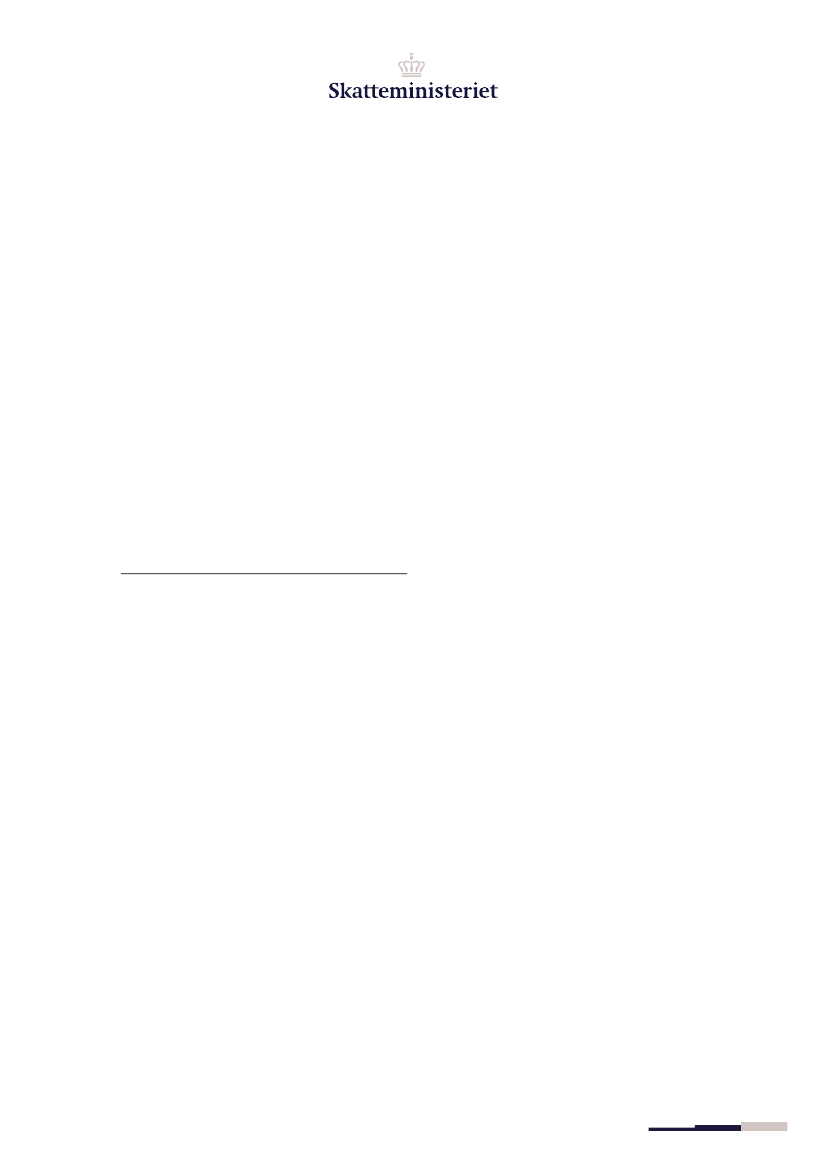
August, 2021
J.nr. 2020 - 8222
Ministry of Taxation
Nicolai Eigtveds Gade 28
DK 1402
–
København K
Tel. +45 33 92 33 92
Mail [email protected]
www.skm.dk
Questions from the Danish authorities on the Commis-
sion’s
Recommendation of 14 July 2020 on making
State financial support to undertakings in the Union
conditional on the absence of links to non-cooperative
jurisdictions
In April 2020, the Danish authorities concluded that according to EU law COVID-19 fi-
nancial support cannot be excluded for Danish companies owned or controlled by a
company in another EU/EEA Member State, unless the structure of the specific group
of companies may be regarded as an artificial arrangement, which is not set up for rea-
sons that reflect economic reality, and which must be considered as an abuse of EU law.
This conclusion, which is based on the interpretation of the case law of the ECJ de-
scribed below, covers companies indirectly owned by companies based in a jurisdiction
included on the EU list of non-cooperative jurisdictions.
As the
Commission’s
Recommendation of 14 July 2020 conflicts with the interpretation
of the Danish authorities, the matter has been subject to intense public debate in Den-
mark.
It should be emphasised that it is a high priority for the Danish Government to play an
active part in the fight against tax evasion and tax fraud. Thus, the Danish Government
fully supports the
aim and the purpose of the Commission’s
Recommendation. However,
the Danish authorities are worried that following the Recommendation with regard to un-
dertakings owned or controlled by a company in another EU/EEA Member State would
not be in line with EU law, and that it could lead to legal challenges initiated by compa-
nies that would be cut off from financial support. This concern is especially relevant in
the light of the public focus on the Danish
authorities’ and the Commission’s different
interpretations.
It is therefore essential for the Danish Government to obtain certainty regarding the legal
reasoning behind the Commission’s
Recommendation before potentially changing the
conditions of receiving COVID 19 financial support or any other kind of financial sup-
port in accordance with the Recommendation.
The case law of the ECJ
The Danish authorities’ interpretation
is based on the view that
–
in the case of control
–
the relevant question is whether excluding financial support would constitute a restriction
of the freedom of establishment. In this context, it follows from the consistent case law
of the ECJ, that
“any national
measure which, albeit applicable without discrimination on grounds of